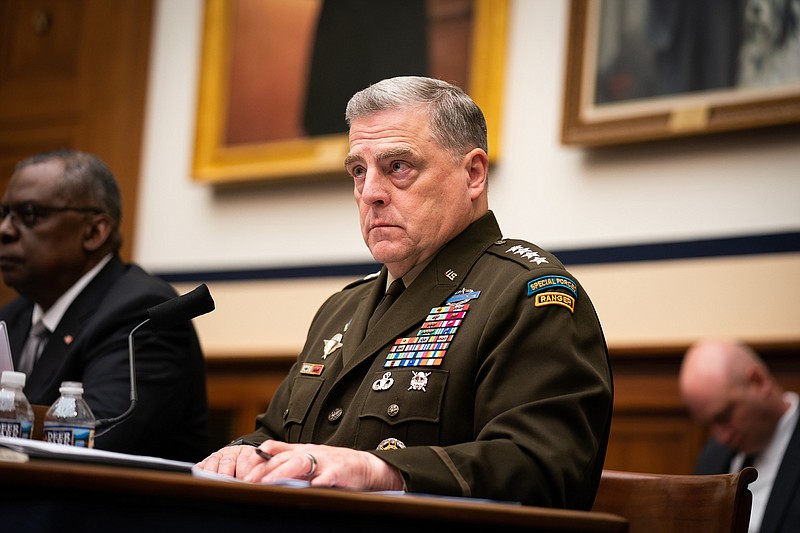Gen. Mark Milley, chairman of the Joint Chiefs of Staff, was so consumed with fear that former President Donald Trump might launch "rogue" conventional or nuclear strikes against China, he acted twice to prevent it, according to excerpts from a new book.
Just days before last November's presidential election, and then two days after the Jan. 6 insurrection, Milley called his "rattled" military counterpart in China to reassure him that the U.S. wouldn't attack, Bob Woodward and Robert Costa report in "Peril." On one occasion, Milley convened his own military team to discuss proper nuclear launch procedures and, on another, reassured House Speaker Nancy Pelosi.
Milley came to suspect that Trump had "suffered a mental decline after the election," according to the Washington Post's excerpt.
But here's the thing: Trump was the same guy before and after the 2020 presidential election and on Jan. 6 that he was when he was elected in 2016. He's the same guy he was decades before that, too. Love him or hate him, Trump is consistent and has stayed true to form for most of his 75 years. It's that authenticity that endears him to his supporters.
Did Trump suddenly go into a psychological slide in 2020 that made him more dangerous than before? No. It was obvious to anyone watching closely that he would rather burn down the house after the 2020 presidential election than acknowledge defeat. He warned of electoral fraud before the 2016 election, too, and he continues peddling the same myth today. It's utterly predictable, because he doesn't change.
The risks that the country, the rule of law and our institutions still confront stems from that reality. The Republican Party continues to embrace and foment Trumpism. Much could still go wrong. And we can't rely on military leaders going rogue to protect us from rogue presidents.
Milley certainly had other reasons apart from Trump's mental state to be worried. The excerpts note that intelligence reports indicated Chinese leaders were wary of a random strike, and Milley worried that their fears might prompt them to lash out. Milley had similar concerns about Trump's posture toward Iran. The general also was an unhappy cast member in Trump's infamous stroll through Lafayette Square during protests in Washington in June 2020.
I'm glad Milley took the steps he did, and I honor his military service. But the fact that he had to maneuver around Trump demonstrates how broken things are. Milley is a sophisticated and dedicated public servant, and he was well aware how his actions would appear.
Milley knew he was "pulling a Schlesinger," Woodward and Costa write, referring to former Defense Secretary James Schlesinger's efforts to check former President Richard Nixon's military authority when Nixon was in danger of being impeached. But the general weighed the fact that critics would "contend that Milley had overstepped his authority and taken extraordinary power for himself" against his belief that his actions were "a good faith precaution to ensure there was no historic rupture in the international order, no accidental war with China or others, and no use of nuclear weapons." Milley, a man of enormous courage and character, chose the latter course.
Milley also understands where all this might be headed. He compared the Jan. 6 insurrection to the failed 1905 uprising in Russia. While the 1905 rebellion sputtered out and was repressed, it paved the way for the more seismic and indelible Russian Revolution of 1917. Milley told senior staff that Jan. 6 might have been "a precursor to something far worse down the road."
His choices and predictions should scare all of us.
Bloomberg
